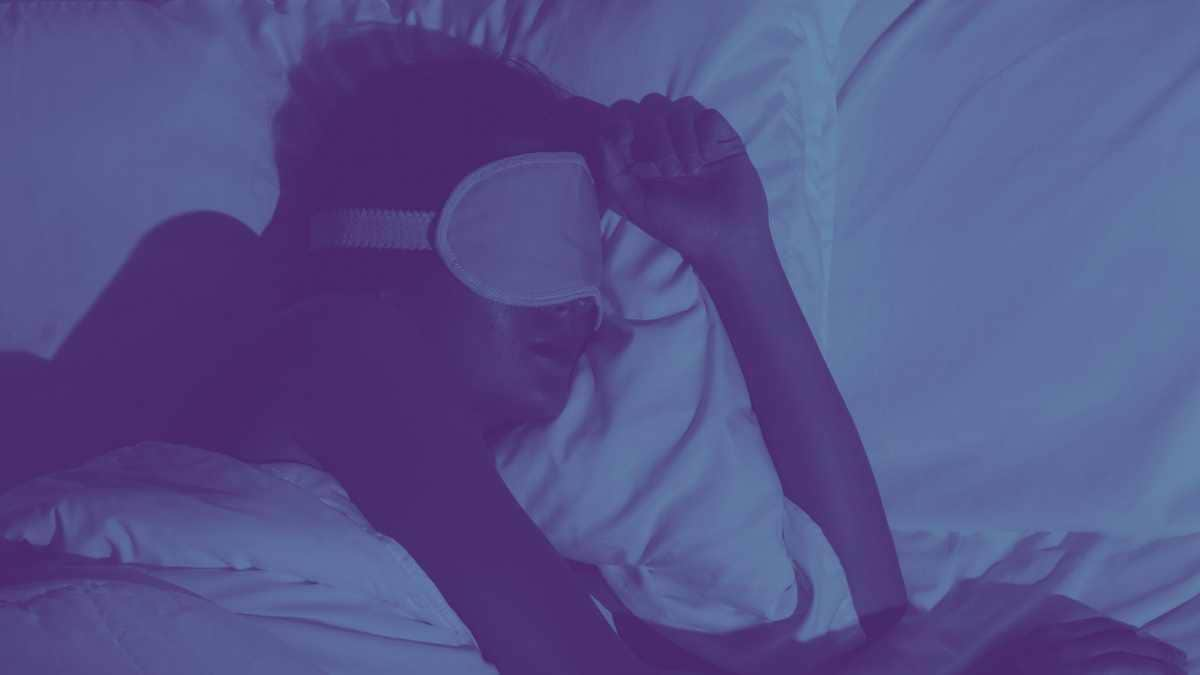Researchers have known that inadequate sleep increases the risk of developing diabetes. The reason has remained a mystery, however.
Now, new research from a team of sleep scientists at the University of California, Berkeley brings us closer to a solution. The researchers have identified a potential mechanism in humans that explains how and why deep-sleep brain waves are able to regulate the body’s insulin sensitivity, thereby improving blood sugar control the following day.
“These synchronized brain waves act like a finger that flicks the first domino to start an associated chain reaction from the brain, down to the heart, and then out to alter the body’s regulation of blood sugar. In particular, the combination of two brain waves, called sleep spindles and slow waves, predict an increase in the body’s sensitivity to the hormone called insulin, which consequentially and beneficially lowers blood glucose levels,”
said senior author Matthew Walker, professor of neuroscience and psychology at UC Berkeley.
Deep-sleep Brain Waves
According to the researchers, this is a significant step forward because sleep is a modifiable lifestyle factor that can now be used as part of a therapeutic and painless adjunct treatment for people with high blood sugar or Type 2 diabetes. Aside from the potential new mechanistic pathway, scientists noted another benefit.
The findings also indicate that deep-sleep brain waves could be used as a more sensitive predictor of someone’s next-day blood sugar levels than traditional sleep metrics.
“Adding to the therapeutic relevance of this new discovery, the findings also suggest a novel, non-invasive tool – deep-sleep brain waves – for mapping and predicting someone’s blood sugar control,”
said co-author Vyoma D. Shah, a researcher at Walker’s Center for Human Sleep Science.
A Uniquely Special Brain Ballet
Researchers have studied for years how the correlation between non-rapid eye movement sleep spindles and slow, deep brain waves corresponded to an entirely different function — that of learning and memory. In fact, the same team of UC Berkeley researchers discovered previously that deep-sleep brain waves enhanced the memory-retention capacity of the hippocampus, the brain region associated with learning.
This new study expands on a rodent model study conducted in 2021, revealing a novel and previously unknown role for these combined brain waves in humans regarding the critical bodily function of blood sugar management.

First, the UC Berkeley researchers analyzed sleep data from 600 individuals. Even after controlling for other factors such as age, gender, and the duration and quality of sleep, this particular coupled set of deep-sleep brain waves predicted glucose control the following day.
“This particular coupling of deep-sleep brain waves was more predictive of glucose than an individual’s sleep duration or sleep efficiency. That indicates there is something uniquely special about the electrophysiological quality and coordinated ballet of these brain oscillations during deep sleep,”
explained Raphael Vallat, a UC Berkeley postdoctoral fellow and co-author of the study.
Low Stress Transition
The team then set out to investigate the descending pathway that could explain the link between these deep-sleep brain waves sending a signal down into the body, eventually predicting blood glucose regulation.
The team’s findings reveal an unfolding series of steps that could help explain how and why these deep-sleep brain waves are associated with superior blood sugar control.
First, they discovered that stronger and more frequent coupling of deep-sleep brain waves predicted a switch in the nervous system’s state to the more quiescent and calming parasympathetic branch. Using heart rate variability as a surrogate, they measured the change in the body and the transition to this state of low stress.
Insulin Sensitivity
The team then moved on to the final step of blood sugar balance. The researchers discovered that this deep sleep switch to the calming branch of the nervous system predicted an increase in the body’s sensitivity to the glucose-regulating hormone insulin, which instructs cells to absorb glucose from the bloodstream, thereby preventing a harmful blood sugar spike.
This is particularly important for individuals attempting to avoid hyperglycemia and Type 2 diabetes.
There is a series of linked associations in the electrical static of sleep at night, such that deep-sleep brain waves telegraph a recalibration and calming of your nervous system the following day. This remarkable associated calming effect on the nervous system is followed by a reboot of the body’s insulin sensitivity, resulting in a more effective control of blood sugar the next day.
Potential Diabetes Therapeutic Target
Subsequently, the researchers examined a separate group of 1,900 individuals to replicate the same results.
“Once we replicated the findings in a different cohort, I think we actually started to feel more confident in the results ourselves. But I’ll wait for others to replicate it before I truly start believing, such is my British skepticism,”
Walker said.
The scientists said the research is particularly exciting given the potential clinical significance years down the line. Diabetes treatments already on the market can sometimes be difficult for patients to adhere to. The same is true of the recommended lifestyle changes, including different eating habits and regular exercise.
However, sleep is generally painless for the majority of people. And while sleep will not be the silver bullet, the possibility of new technologies that can alter brain waves during deep sleep in a safe manner may help diabetics better manage their blood sugar. According to the research team, this is cause for optimism.
References:
- Raphael Vallat et al. Coordinated human sleeping brainwaves map peripheral body glucose homeostasis. Cell Reports Medicine (2023). DOI: 10.1016/j.xcrm.2023.101100
- Tingley, D., McClain, K., Kaya, E. et al. A metabolic function of the hippocampal sharp wave-ripple. Nature 597, 82–86 (2021)
